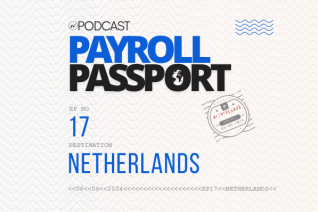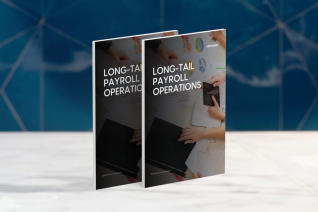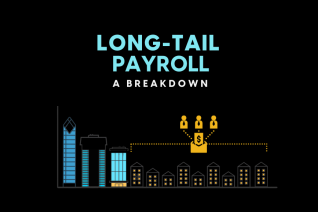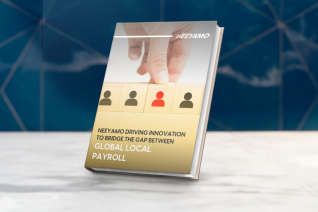Establish your presence globally with Neeyamo as we help you go beyond borders to manage your international payroll and hire new talent in Netherlands.
Overview
There's a remarkable chance that the flowers you encounter have their roots in the Netherlands. The Netherlands plays a pivotal role in the global flower industry, responsible for a staggering 80% of the world's flower bulb production. In fact, the flower industry contributes a significant 5% to their GDP. Notably, the Netherlands houses an astounding 90% of the world's total tulip farm acreage, all thanks to its dedicated and skilled workforce.
Do your organization’s expansion plans require you to hire employees in the Netherlands? Do you lack a physical entity in the country – a key requisite to hire local talent? Neeyamo assists organizations worldwide with onboarding and managing employees in the Netherlands -processing payroll, managing local compliance requirements, benefits, and more.
Our Presence
Tools And Instances
Facts And Stats
Capital
Amsterdam
Currency
Euro (EUR)
Official Language
Dutch
Fiscal Year
1 January - 31 December
Date Format
DD/MM/YYYY
Country Calling Code
31
Other Languages
German, Spanish, French
Time Zone
UTC + 01:00
Global Payroll
Overview
Payroll means the list of compensation to be paid to employees of a company or organization for a set period or date.
Handling payroll for a widespread workforce can pose a significant challenge for any organization, and the added complication of compliance can make things worse. If companies spend more time processing payroll, it directly impacts day-to-day operations and their overall productivity.
Over the years, Neeyamo has observed these complexities and strived to provide a global payroll solution through a single technology platform - Neeyamo Payroll. Neeyamo's global payroll services ease the process for companies looking to outsource their global payroll requirements and aid them in maneuvering the tricky payroll system in the Netherlands.
Payroll Taxes
Payroll tax is the percentage amount retained from an employee's salary and paid to the government to invest in the general population's welfare. These are statutory in nature and are levied from both the employer and employee. Additional statutory contributions are made by employers towards aiding both short-term and long-term benefits for their employees.
Employee Taxes
Employee Payroll Contributions:
- 17.90% Old Age Pension (AOW)
- 0.10% Orphans and widow/widower pension (ANW)
- 9.65% Long Term Care (WLZ)
- Up to 2.70% General Unemployment Fund (Awf: for employees with a permanent contract for an indefinite period)
27.65% to 30.35% Total Employee Cost
Employee Income Tax:
- 1st Bracket: Income up to €38,883 is taxed at 35.75%
- 2nd Bracket: Income from €38,883 to €78,426 is taxed at 37.56%
- 3rd Bracket: Income above €78,426 is taxed at 49.50%
Employer Taxes
- General unemployment insurance (AWF) – 2.64% for contracted workers with an indefinite term; 7.64% for flex workers and temporary workers
- Occupational disability insurance (WIA) - 7.54% high premium rate and 6.18% low premium rate
- Childcare allowance contribution - 0.50%
- Healthcare Insurance Act (ZVW): 6.68% of an employee's salary
- Old-age, Survivors, and Disability Insurance (AOW): 6.75% of the employee's salary
- Return-to-Work Fund (Whk): Varies according to the business, between 0.21% and 3.48% of the employee's salary
- The average WGA premium will rise to 0.96% (up from 0.83%), primarily due to a rise in long-term illness claims, especially among younger employees.
- The average ZW premium will increase to 0.56% (up from 0.50%) to cover higher program costs.
- Employers have the option to self-insure instead of paying premiums to the Employee Insurance Agency (UWV). If you choose to self-insure, you will pay these benefits directly to employees. The deadline to start or end a self-insurance arrangement is October 1, 2025.
Payroll Cycle
Overview
Undoubtedly, payroll is a critical process for any organization. The pay cycle in the Netherlands refers to the period for which an organization pays its employees, and this can vary depending on the pay frequency that the organization chooses to adopt. The payroll system in the Netherlands is tricky to maneuver, but with Neeyamo's global payroll software, it could be a comfortable click of a button for you.
Frequency
In the Netherlands, the payroll frequency is monthly. Work between the first and last day of the month is typically paid on the last day of the month.
13th Month Cycle
A 13th-month salary is not mandatory, it’s up to the employer to give any additional salary/ bonus.
Global Work
Overview
What is Employer of Record (EOR)?
An Employer of Record services (EOR) provider helps you eliminate the hassle of handling complexities while onboarding a new employee in an international location. They help bridge the gap that otherwise mandates organizations to have a local registered entity and a local bank account prior to making a job offer to an international hire.
An EOR service provider acts as a legal employer, facilitates salary payments and manages other statutory requirements such as health insurance, payroll taxes, and employee benefits, and ensures compliance with local tax laws and regulations.
This allows organizations to focus on collaborating with the employees in the Netherlands for operational tasks, with the knowledge that they have a cost-effective solution to support their global payroll & HR requirements as they continue their global expansion.
HR Mandates and Practices
Minimum Wage
Effective July 1, 2025, as part of its biannual indexation, the Dutch government has raised the statutory minimum wage by 2.42%. This increase applies to hourly minimum wage rates across all age groups, details of which are as follows:
| Age Group | Rate |
|---|---|
| 21 years and older | €14.40 |
| 20 years | €11.52 |
| 19 years | €8.64 |
| 18 years | €7.20 |
| 17 years | €5.69 |
| 16 years | €4.97 |
| 15 years |
€4.32 |
Effective January 1, 2026, the gross minimum hourly wage is €14.71 per hour.
| Age Group | Rate |
|---|---|
| 21 years and older | €14.71 |
| 20 years | €11.77 |
| 19 years | €8.83 |
| 18 years | €7.36 |
| 17 years | €5.81 |
| 16 years | €5.07 |
| 15 years |
€4.41 |
Overtime
There is no standard for overtime; it is usually agreed upon by individual employment contracts and collective agreements.
Data Retention Policy
Employers must keep accounting records for seven years. This includes hours worked for each employee, total wages paid, total taxes withheld, and other details.
Employment law changes in 2023
- Increase of tax-free travel allowance to EUR 0.21 per kilometer.
- Increase of maximum transition payment.
- Changes in State Pension Age
- The amount of childcare benefit will no longer depend on the number of hours worked.
- Reducing the basic individual income tax rate in 2023 to 36.93%.
Hiring and Onboarding Requirements
Hiring
Discrimination in the workplace is prohibited. This also applies to the recruitment process, which means that the text for vacancies may not include discriminatory requirements.
In January 2022, the Act on More Balance Between Men and Women in Boards and Supervisory Boards entered into force. This act introduced a quorum, which stipulates that the supervisory board of Dutch market-listed companies must consist of at least one-third women and one-third men.
Every appointment of a new member that is not in line with the quorum is void. Additionally, large companies, whether public or private, have to implement ambitious and fitting target figures to create more balance between men and women in the board, the supervisory board and the second-level management.
Large listed companies have to apply the target figures to the board and the second level management since the quota already applies to the supervisory board.
Onboarding
In order for an employee to work in the Netherlands, there are a couple of requirements to be met:
- The employee must hold the residency permit
- Employers are supposed to obtain an employment permit
- Employees belonging to either Dutch nationality or to Switzerland or European Economic Area are excused from these rules.
Probation
Probation or Trial periods are generally set within the collective agreements and contracts of the employee; however, standard practice in the Netherlands is two months.
Leave
National Holidays
The Netherlands has 8 official public holidays.
- Jan. 1: New Year's Day
- Apr. 7: Good Friday
- Apr. 10: Easter Monday
- Apr. 27: King's Birthday
- May 5: Liberation Day
- May 18: Ascension Day
- May 29: Whit Monday
- Dec. 25: Christmas Day
Sick Leave
The minimum sick leave pay is 70% of the employee’s current wage up to a maximum period of two years. This is a generous benefit and does reflect the Netherlands’ social policy. Some employers will even pay 100% of the wages.
Short-term care leave:
Maximum of 2 x the working hours of an employee in 12 months: During the period of leave, the employer continues to pay 70% of the employee’s salary. If this is less than the minimum wage, they pay the minimum wage.
Maternity Leave
A pregnant employee is entitled to 16 weeks of paid Maternity leave; Maternity leave consists of two periods: prenatal leave and postnatal leave.
Prenatal leave: An employee must take 4-6 weeks' leave before the expected due date (zwangerschapsverlof)
Postnatal leave: A employee must take the remaining 10-12 weeks (bevallingsverlof)) which starts from the date of the birth of the child.
The Maternity pay can be paid by the Employee Insurance Agency (Uitvoeringsinstituut Werknemersverzekeringen, UWV). However, it is common practice for the employer to continue paying the salary and the UWV, in turn, pays the employer. Suppose pregnancy or childbirth results in the incapacity for work. In that case, the employee is eligible for benefits equivalent to 100.00% of her salary for the maximum of a year after the date of birth.
Paternity Leave
The father/partner is entitled to 1 week of paid Paternity leave after the child’s birth.
Employees are also entitled to 5 weeks of unpaid leave in the first six months after birth; even though this is unpaid by the employer, they can claim up to 70.00% of their salary from the Employment Insurance Agency (Uitvoeringsinstituut Werknemersverzekeringen, UWV).
Parental Leave
In effect from August 2022, new parental leave will entitle new parents to 50 % of their wages for the first nine weeks of leave, guaranteeing all parents at least nine weeks of paid parental leave, paid for by the government, as long as the leave is taken during the first year of the child’s life.
Annual Leave
Employees have the right to a statutory minimum of four times the agreed weekly working hours per year. This amounts to 20 days per year for those who work full-time. Entitlement for part-time employees is reduced by the appropriate proportion.
Pay: An employee is entitled to his/her usual wages during vacation and is generally paid an allowance equal to 8% of their gross salary for the year.
Emergency Leave
An employee is entitled to a paid leave of absence for a short period for any unforeseen emergencies, to take care of the very first-day illness, in case of death of near relatives, etc.
Adoption & Fostering Leave
An employee who adopts a child or takes in a foster child is entitled to a maximum of 6 weeks of leave. This leave shall be taken within 26 weeks, i.e., from 4 weeks before the arrival of an adopted or foster child up to and including 22 weeks afterward.
The leave shall start as early as four weeks before the arrival of the child or, at the latest, in the 18h week after the arrival of the child. An employee receives 100% of daily wages as benefits for leave by social security.
Long-term care Leave
An employee is entitled to unpaid leave for the purpose of taking care of a child, partner, or parent who is life-threateningly ill or who is seriously ill and is in need of assistance. An employee is entitled to a maximum of 6 times working hours per week in each period of 12 consecutive months. The twelve-month period starts on the first day on which the leave is taken. An employee is entitled to pay from social security.
Termination
Notice Period
The statutory minimum notice period for termination in The Netherlands is one month however it is dependent on the employee’s length of service as below:
- less than 5 years – 1 month notice
- Between 5 and 10 years – 2 months’ notice
- Between 10 and 15 years – 3 months’ notice
- More than 15 years – 4 months’ notice
Severance Pay
Severance pay in The Netherlands is referred to as transition payment and is stipulated in the employment contract/collective agreement. In general, employees are entitled to a payment from their first day of employment when an employer terminates their employment agreement. The amount due for payment is calculated per the contract but at least at a rate of one-third of the regular salary income per year of service up to a maximum of 84,000 EUR.
- Pension accrual requires a defined contribution system, with joint management and investment, replacing the no-agreed-upon defined benefit pension system.
- Introduction of three new types of schemes.
- Most defined-benefit pension plans no longer allow age-dependent pension contributions.
- The tax limitation will now apply to contributions rather than pension accruals.
- Employers should prepare a transition plan for employees transitioning to a new pension scheme, considering consequences and compensation. Options include temporary increases in payments, financial buffers, and lump sums from the employer.
- The partner's pension in the event of death before reaching the retirement date will change.
Visa
Overview
There is no formal requirement for EU/EEA/Swiss nationals to obtain a residence or work permit. Still, they do need to obtain a residence permit to be eligible for social security benefits.
Nationals of the USA, Canada, Japan, Australia, New Zealand, and all non-EU/EEA/Swiss foreign nationals who wish to stay longer than three months in the Netherlands must obtain an “authorization temporary stay” (MVV) from the Dutch embassy or consulate in their home country before entering the Netherlands.
The employer must submit a work permit application to the Social Security Office (UWV), providing evidence that they have made every effort to recruit a Dutch/EU/EEA/Swiss national in the first instance. No applicant is allowed to work in the Netherlands until their work permit has been approved.
Employee Background Checks
Legal and Background Checks
Background checks can be done by employers in the Netherlands but are strictly regulated by the EU General Data Protection Regulation. The employer must have a legitimate reason for the check, the check must be necessary, and the employee must be informed properly before and after the check. The results of the check may only be saved for the period necessary for the screening.
Last updated on January 19, 2025
If you have any queries or suggestions, reach out to us at irene.jones@neeyamo.com
Have Queries? Get In Touch With Us
Get in touch with one of our experts and take a quick demo of our services












